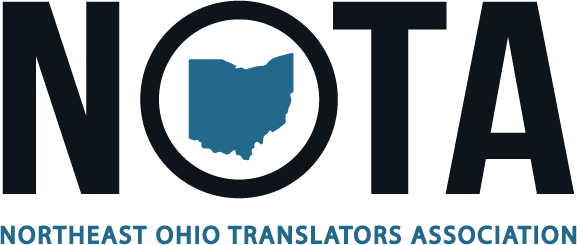Tips for Clients
The decision to use a professional translator or interpreter will make the decisive difference for anyone venturing abroad, be it in the business, political or cultural arena. Any planning and negotiation necessitates effective communication. A Japanese or Russian doing business in the United States is expected and is prepared to transact his business in English, (i.e., in good, not sub-standard English). The American businessperson, anticipating a successful business venture abroad, must be prepared to do the same.
Since few individuals are fluent in several languages (not to mention the all-important familiarity with different traditions and cultural idiosyncrasies), a competent translator (for written materials) or interpreter (for oral communication) is the key element for effective communication.
The American Translators Association has recently published a brochure for clients entitled Translation: Getting It Right. A guide to buying translations. The file linked here is the digital version of the ITI's original version. This brochure is available free of charge from ATA. Please contact the ATA if you would like the actual printed brochure.
What to Expect from a Translator
What to expect from an experienced and competent translator:
- Provides evidence of a thorough knowledge of both source and target languages, as well as above-average familiarity with the particular subject matter.
- Furnishes proof of competence as a translator, such as work samples, letters of reference, published translations, and/or membership in and certification by ATA.
- Refrains from seemingly broad or exaggerated promotional claims about professional capabilities.
- Has access to reference tools and requisite equipment to provide for complete services and a presentable product.
- Brings unsolved problems to the client's immediate attention.
- Respects reasonable deadlines.
- Quotes fees for an assignment only after prior examination of the material to be translated
- Charges professional fees commensurate with professional capabilities and specialized knowledge.
Obtaining a Quality Translation
A translator's qualifications are sometimes difficult to assess because there is no licensing procedure on the federal, state or local levels. Translators and interpreters usually have a university degree in either a foreign language or in a specialized field, such as science, engineering or business, along with knowledge of one or more foreign languages. However, in recent years it has become more common for professional translators and interpreters to obtain formal academic training in the field. Translation and interpretation are activities which entail creative, intellectual processes and not a mere mechanical transfer of words. A thorough familiarity with the cultures of both languages involved is absolutely indispensable. In other words, mere knowledge of a foreign language and a set of dictionaries are not enough for producing an acceptable translation that reflects some or all of the following criteria:
- The presentation style and format should be in accordance with the client's specification (rough draft, final draft, copy ready, etc.)
- The final version should be neat and accurate, and read like an original document, (i.e., convey the same shades of meaning, logic and style.)
- A technical translation requires absolute clarity and accuracy. Highly specialized or preferred terminology, when supplied by the client, should be incorporated. Such a translation often necessitates frequent consultation between the client and the translator.
- Advertising and promotional materials often require complete rewriting. Here, the principal criterion should be the undistorted communication of exact meanings, but in a context that is sensitive to the intended audience's cultural and psychological idiosyncrasies.
- Feedback from the user will ultimately be the best criterion by which to judge the quality of a translation.
It is important to remember that translators are not miracle workers. Poorly organized or nonsensical materials will remain poorly organized or nonsensical in the translation (unless, of course, the translator has also been contracted to edit the document before translating it). Most source documents are checked by several people and subsequently rewritten. The same will hold true for translated versions of those documents. Any text intended for publication typically requires copy editing, whether locally or in the target country, and careful proofreading of the typeset copy. Lead time is therefore very important. Good quality translation always requires research and time. Whenever possible, the client should provide in-house glossaries of preferred terms, as well as existing translations of similar materials and competitors' literature in the target language.
Freelance translators and translation bureaus offer professional services in a free and open market at widely varying rates and in accordance with a client's specifications, the length and the complexity of the job in question, the final product form (rough draft, copy-ready, typeset, graphic designs, etc.) Rates for translations from major western languages (French, German, Spanish) into English are as a rule lower than those for translations from English into those languages or from and into more exotic languages.
Rates also vary according to the amount of specialization involved (technical, semi-technical, non-technical.) Additional charges are often levied for special services such as extremely short deadlines (immediate turnaround), overnight delivery, weekend or holiday work, intricate formatting, translation from difficult-to-read materials (such as old handwritten manuscripts), special photocopying or similar ancillary services. Straight text is generally quoted and billed on the basis of the end-product word count (manual or computer-generated), while labor-intensive tasks such as tables, paste-ups, advertising copy, etc. are typically charged at an hourly rate or at a flat fee.
See also Links for additional help.
